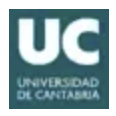Introduction
The University of Cantabria is a modern public university located in Santander, Torrelavega and Comillas in the autonomous region of Cantabria, Spain. It is famous for its high-quality teaching, scientific research and extensive international cooperation.
Overview
Student size: 14,205 students, including 11,668 undergraduates, 2,537 postgraduates and 635 doctoral students.
Number of faculty and staff: 1,267 academic staff and 1,088 administrative staff.
History and establishment time
The university was established in 1972 by a decree of the Spanish Council of Ministers. It was originally named the University of Santander and was renamed the University of Cantabria 13 years later. Its origins can be traced back to the Aerospace and Business School in 1829, the Industrial School in 1901, the Normal School in 1915, the Nursing School of the Valdisilla Hospital in 1929, etc. In the 1950s, the Mining School of Torrelavega was gradually incorporated, the Civil Engineering School in 1966, the Social Graduate School in 1969, etc. also laid the foundation for its development. In 1970, the City of Santander and the Provincial Council provided land to build a new campus, the Medical School was established in 1973, and the new Humanities School in 1978 consolidated its university autonomy.
School Strength
Disciplines and majors: 15 Colleges and schools provide higher education at the associate, undergraduate, master and doctoral levels, with a wide range of majors, including business administration, anatomy and cell biology, molecular biology, history, internal medicine and surgery, public law, economics, education, applied physics, communication engineering, mathematics, statistics and algorithms, nursing and other fields.
Teaching quality: Committed to excellent teaching and scientific research, the teaching plan balances practice and theory, and strives to provide students with all-round training. All courses are taught by experienced teachers, focusing on cultivating students' critical thinking, innovation and practical ability.
Faculty: The teaching team consists of 1,267 academic staff. They not only have a solid academic background, but also have rich teaching experience and industry practice experience, and can provide professional guidance and support to students.
International cooperation: It is a member of the Compostela University Group and the Santander Network, and has signed 216, 64, 8 and 1 with many universities in Europe, Latin America, the United States, Australia and other countries and regions. The University of Cantabria has signed agreements with the European Commission, actively carried out student exchange programs through the Erasmus Program, and participated in several EU-funded projects such as Atlantis and Erasmus Mundus.
Institutional Nature
The University of Cantabria is a public university.
Educational Philosophy
It is committed to contributing to social progress through excellent teaching and scientific research, focusing on cultivating students' all-round development, emphasizing the integration of knowledge, skills and values, and cultivating professionals with social responsibility, innovative spirit and global vision, so that they can contribute to society in different fields.
Key laboratories and disciplines
Key laboratories: No particularly outstanding key laboratories were found in the school, but the school is equipped with corresponding teaching and research facilities for various disciplines to support the scientific research and practical activities of teachers and students.
Key disciplines: The school's marine engineering major is strong and ranked 6th in the world in the 2017 Shanghai Ranking. In addition, the university ranks 2nd and 3rd among Spanish universities in 2017 in terms of fundraising for professors who provide services to companies and for professors who have research contracts with companies.
Faculty
The university has 15 faculties and schools, including the Faculty of Sciences, Faculty of Humanities, Faculty of Medicine, Faculty of Economics and Business Studies, Faculty of Law, Center for Higher Spanish International Studies, Altamira Tourism School, Kimbenet-Cantabria School of Physical Therapy, Faculty of Education, School of Civil Engineering, School of Industrial Engineering and Telecommunications, School of Navigation, School of Nursing, School of Mining and Energy Engineering.
Ranking
In the 2013 Academic Ranking of World Universities, the university was ranked among the 151-200 best universities in the world in the field of physics.
In 2017, in the BBVA-IVIE ranking, the university was the 4th most productive university in Spain in terms of global productivity in teaching, research and knowledge transfer.
Since 2018, the university has been among the top 1,000 universities in the Shanghai Ranking.
Expenses
Undergraduate tuition is approximately 800-1200 euros/year, master's tuition is about 1000-1500 euros/year, the specific cost varies according to the major.
Campus environment
Campus distribution: Mainly located in Santander, Torrelavega and Comillas in Cantabria, Spain, the campuses are distributed in different cities, providing students with a diverse learning and living environment.
Campus facilities: The campus is equipped with modern teaching buildings, libraries, laboratories, sports facilities, etc., providing students with good learning and living conditions. Students can make full use of these facilities in their spare time to enrich their campus life.
Campus culture: The school focuses on cultivating students' teamwork spirit and social responsibility. Through various club activities and volunteer projects, students can grow and exercise in practice. The campus cultural activities are rich and diverse, providing students with a broad development space and communication platform.
-
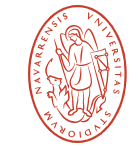
University of Navarra
-

Autonomous University of Madrid
-

Polytechnic University of Catalonia
-

CEU University of San Pablo
-
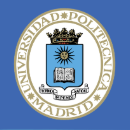
Technical University of Madrid
-

University of Lleida
-
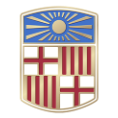
University of Barcelona
-

University of Oviedo
-

University of Valladolid
-
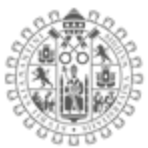
University of Salamanca
-

Mesoamerican University
-

Istmo University
-

Mariano Galvez University of Guatemala
-

Regional University of Guatemala
-

Galileo University
-

Francisco Marroquín University
-

Rafael Landívar University
-

University of the Valley of Guatemala
-

University of San Carlos of Guatemala
-

Technological Institute of Tlaxcala Plateau
-

Golfo University
-

Technological University of South Sonora
-

Technological University of Huejotzingo
-

Tizimín Institute of Technology
-

Chilpancingo Institute of Technology

